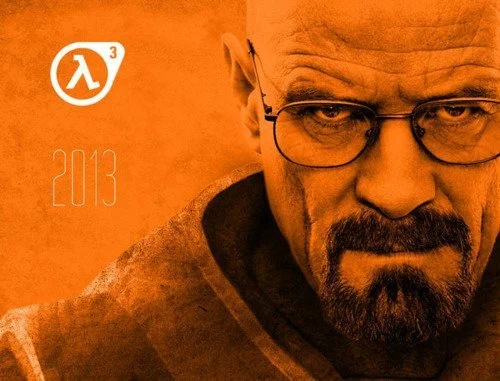
When I think of games made in 1998 or prior, I often think of games such as those from the Zelda series or, more specifically, Mario 64. And while these may be great games, I must admit that for me these game definitely give off that “retro” feel. The retro aspect of such games is not a hinderance at all (many retro games are better than many modern games and vice versa), but as someone who is not an avid fan or, perhaps better said, a connoisseur of these types of games, I found it hard to get excited for this assignment. However, I had heard great things about the Half-Life series (the original came out in 1998) and so I wanted to try it out. And let’s just say I’ll be checking out other retro games, if not at the very least finishing this series.
First I’d like to briefly talk about the story of the game. You start the game as a member of the science team named Gordon Freeman working in an underground research facility. After a failed experiment, aliens begin invading through some type of dimensional rift and overrun the facility. With the help of the science team, you are tasked with escaping and fighting off the aliens. But the government, who wants to keep the invasion on the down low, begins killing everyone associated with the event. Gordon and the science team are then forced to take up the seemingly very difficult task of taking on an alien invasion and the government at the same time.


The genre of the game is clearly defined as a survival first person shooter (more or less horror) game at the beginning of the game, yet later on a new enemy is introduced that in my opinion alters this genre in an interesting way. And that is the introduction of the government (a large, overarching storytelling plot device) as well as the human enemies that are introduced along with it. These two images above are a good example of what I mean by this. They look strikingly different yet come from the same game, combining a simple monster killing survival game with a complex and morally challenging concept.
I also found the narrative of the game to take on many different approaches to story-telling that to me seemed to work very well together. At the beginning you are thrust into your daily job as part of the science team and are given bits of story information throughout the game by way of the scientists or security guards talking to you. I really enjoyed this type of storytelling cause it kept up the fast paced feel of a survival first person shooter game while still guiding you along with an interesting story, placing it second to the gameplay. I wouldn’t say this is an embedded narrative, although there are many instances of mise en scene in order to surprise or scare the player.
The gameplay and mechanics I thought were very well designed. It didn’t feel clunky or “retro” at all and in fact felt comparable to some more modern games. The movemet felt very fluid and there’s a variety of movement options from swimming to riding a cart on the railway system. And while simple, the enemy and gun systems never felt dull or repetitive to me as new guns and enemies were constantly being introduced throughout the game. The creators of the game definitely used what they had and paced the game very well by choosing this approach. There was also a surprising amount of puzzle solving involved that made the game more fun and less repetitive as well.

While I have many good things to say about this game, one of my favorite aspects was probably the use of npcs. The game is very aware of the role npcs play in video games and does not go to lengths to add much character or variation to the science team for instance. But I found that it challenged the idea of what an npc is and how the player should or could feel about them. The game allows you to kill the members of the science team (whether by accident or on purpose) and adds a comedic effect to their presence. The npcs are not meant to be pivotal individual characters in the story but rather function as a whole. They die in many funny ways (mise en scene) and make funny comments. They also all sound the same. One of my favorite lines is when an enemy soldier, falsely accusing Gordon of sabotaging the experiment, vows to stop him and says “all I know for sure is that he’s been killing my buddies.”
While funny, my interactions with the npcs in this game made me wonder. What is the role of npc in video games? And it’s this exact question that I’d like to serve as my main takeaway for this game.
